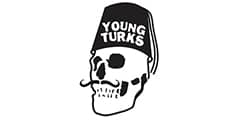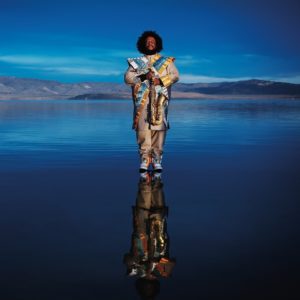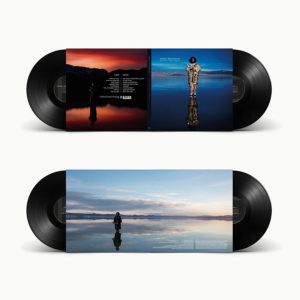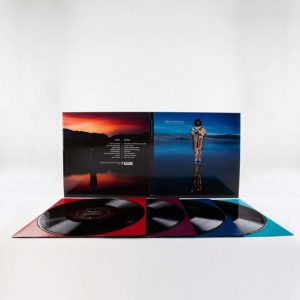Marketplace
2018 Young Turks PRESSING
- Catalog Number YT176LP
- Release Year 2018
- Pressing Weight Regular Weight
- # of Disks 5
- Vinyl Color Black
- Jacket Style Gatefold
When listening to this album I think of this band or music:
A lot of tenor and alto sax players, and young musicians out to change a genre or at least bend it their way.
I would listen to this album while:
Needing a shot of soul jazz. Or to keep a party happening. Or when I’m in the mood to actively listen to ten sides, back to back.
Music from this album would be a great soundtrack to this movie:
Five Deadly Venoms. Or a road-trip picture that goes across Southern California into Los Angeles.
Kamasi Washington has so many ideas, it sometimes feels like he’s racing against time to say them all. Heaven and Earth, his vast, sweeping second album, conveys an obvious urgency to tell a story with each track. On it, he is a performer, a truth teller, a jazz prophet for whom no canvas is too large and whose recordings sometimes feel like they are just scratching the surface of everything he wants to communicate.
While Washington may be a cerebral spiritualist, celebrated as a collaborator with the likes of Snoop Dogg and Kendrick Lamar—and one of the leaders of the West Coast Get Down, the group of hugely talented Los Angeles-based players that includes Thundercat (Stephen Bruner) and keyboardist Cameron Graves—at his core, the California native is a jazz saxophonist. John Coltrane echoes reverberate throughout his performances on all ten sides of this massive vinyl package. A re-arranged cover of one of Freddie Hubbard’s signature tunes, “Hub-Tones,” gets played straight enough to please purists. And yet Washington remains open to influences from all quarters. Wordless vocals from a 12-member choir and massed strings from a 26-piece orchestra—both key parts of the album—turn a tune like “Space Travelers” into a boundless, cinematic panorama of sound.
While Heaven and Earth aptly works around the elemental duality of heaven and earth, the conscious and the unconscious, and thoughts and actions, the music tends to operate in the same basic vein. It’s a fearless if not wholly original fusion between the instrumental themes of hard bop, the G funkiness and rhythmic invention of soul jazz, and the soul and devotion of gospel—all seasoned by Washington’s hearty sense of adventure. While its influences are obvious, this is a music for the new century. To those worried jazz is not what it once was, Washington offers hope. Not a Fletcher Henderson, nor a Charlie Parker, he champions new flavors, young energies, and a much-needed connection with a younger hip-hop-centric universe of listeners.
Heaven and Earth




 4
4